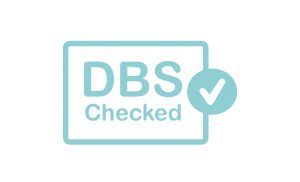FAQs
What is an accent?
There's no easy answer to this question. Ultimately, everyone has an accent! Accent is the result of real-time choices we make about how to pronounce certain sounds and words. Most of these choices are sub-conscious, and are driven by what we have been taught and what we have heard, and is influenced by regional, cultural and linguistic backgrounds.
I've lived in England for 20 years - why do I still have an accent?!
There are lots of reasons for this. Primarily, though, it is a result of what we call phonological interference. You learn an accent by hearing and perceiving. When certain sounds in your first language are different from, but similar to, certain sounds of English, it is very hard for your brain to perceive the difference. As a result, you effectively hear and then reproduce your first language sound, not the English sound. No matter how much exposure you get to English, your brain will keep telling you you are producing the sound correctly!
What's the difference between coaching and tutoring?
There are lots of different coaches and tutors in the world, which means that some people's tutoring is similar to another's coaching. I prefer to call what I do 'coaching', because:
- It is tailored to each individual and incorporates each individual's career objectives into the sessions
- It is outcome-focused rather than content focused - with tutoring, you will typically work with someone who uses identical material and lesson plans for everybody.
- It has elements of mentoring and is supportive of your overall career goals.
- It is specialised - many tutors are exceptional teachers of English, but struggle to teach pronunciation and communication effectively, and have not always had experience in the corporate world alongside their English training.
How long does it take?
This is a really loaded question! It really is different for different people. I typically find that the minimum commitment is about 12 sessions. This allows us to develop the building blocks for successful development, and some people can take these skills away and continue their learning solo. Most of my clients will have 50+ sessions with me.
I'm really busy - will I have to do lots of homework?
No! The benefit of working with someone who specialises in professional development is that I understand the time commitment work and family imposes. Each session will provide you with value regardless of whether you have had a chance to prepare or do any practice. The so called 'Flipped Classroom' approach is gaining in popularity for language learning, but does not lend itself to busy professionals who may only have an hour to spend on their self-development each week, so I don't subscribe to this method. Instead, you will leave each session with one or two key points to integrate into your regular English use between sessions, rather than require you to dedicate additional time to completing exercises, for instance.
What happens in a coaching session?
It depends! In our first couple of sessions we will assess your speech, discuss how 'accent' works, and formulate a suitable approach that meets your specific objectives. Typically, in the early sessions of our coaching relationship the focus will be on the core building blocks of speech - particularly sounds you might struggle with. We will use a variety of tools and methods to practise troublesome sounds and to 'rewire' how you pronounce and perceive English. As we progress, we will build on your connected speech, intonation, stress etc., so that you can communicate in an engaging manner. Many of my clients like to dedicate sessions to preparing for a meeting, job interview or presentation.
You can find out more here.
Will I have to learn lots of theory?
A little bit, yes.
Research consistently demonstrates that understanding the science behind pronunciation significantly accelerates acquisition of new speech patterns, so spending a couple of sessions early on to understand the 'how', 'why' and 'what' of pronunciation provides an excellent return on the time investment.
You can read more on this in my article here.
I want a neutral accent - is this possible?
I get asked this a lot. The simple answer is 'there's no such thing as a neutral accent'. Everybody has an accent!
Ultimately, the goal with any sort of accent work is to improve the clarity of your speech so that there is no part of your accent that negatively impacts other people's ability to understand you fully and with minimal effort. My coaching on pronunciation and accent all focuses on two pillars - ensuring intelligibility and maximising naturalness.
Do you teach RP English?
There is a misconception that RP English is somehow 'standard' or even 'the gold standard'. In reality, RP (received pronunciation) is a dying breed - very few people in the UK speak with an RP accent (around 3-5%), and in fact many would argue it has a negative stigma attached to it and it is sometimes considered elitist.
I don't teach any specific accent as they are personal and exist on a spectrum. Naturally my accent (probably defined as a variant of Standard Southern British English with a twinge of Australian and West Midlands) will serve as a guide for many of my clients.
How much does it cost?
You can find my current prices here and here. Prices are per 50-minute or 25-minute session, with discounts when purchasing packages of multiple sessions.
My 'average' client finds they will invest around £1200 on coaching over the course of about 1 year, or approximately £100/month - about the same as an average gym membership but with significant ROI when translated to career growth.
Why wasn't I taught any of this before? Why is it so hard?
Many of my clients come to me saying that despite being near fluent English speakers they've never been explicitly taught any pronunciation. Why is this?
When we first start learning a second language, by necessity our instruction focuses on vocabulary. We learn how to pronounce an individual word, largely by mimicking a teacher rather than understanding the phonetics that sits behind it - this is a completely understandable allocation of time and energy on the teacher's part. If we choose to continue our studies, we learn grammar and how to put the words we've learned into a string, and start to engage in more conversation. But, by this point, we've already hardwired our brains with pronunciation tactics learned from the vocab we learned to begin with.
The fact is that many English teachers aren't native speakers themselves and have not had any formal phonetics training, meaning they feel less confident teaching pronunciation. This is compounded by the fact that everybody has a different size/shape of mouth and needs targeted instruction to correctly produce many speech sounds. If that wasn't enough, we then have to also factor in that people are sensitive about their accent, and it needs to be taught with empathy and a lot of patience.
What language will my lessons be in?
Can my employer pay?
Yes! Many of my clients' sessions are paid for by their employers. I can invoice your company directly, or you can pay and ask them to reimburse you.
How many lessons per week should I have?
This is entirely up to you. The most important thing is that it is a number you are comfortable with and that fits into your schedule. It is preferable to be able to have at least one lesson every week - this cadence ensures continuity and regular practice - but I recognise that this isn't always possible. Most of my clients have either one or two lessons per week.




